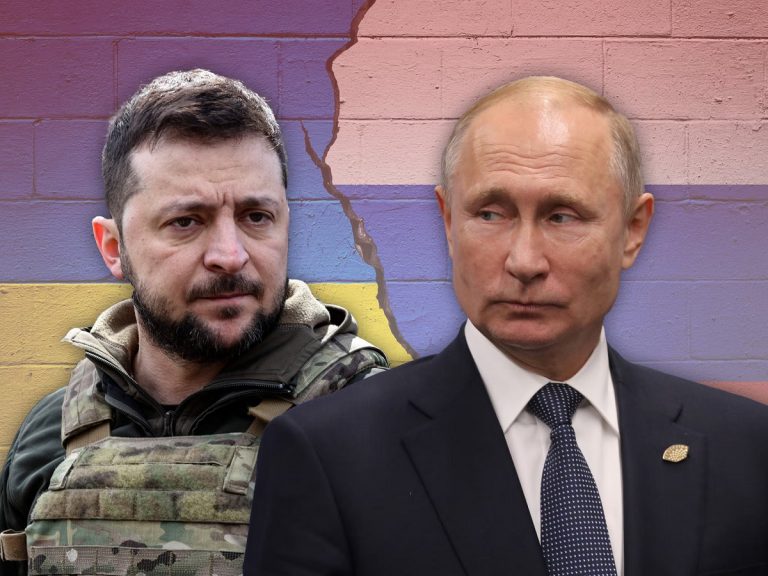
Russia and Ukraine held their first direct peace talks in over three years in Istanbul, Turkey. The negotiations, involving lower-level delegations, lasted less than two hours and ended without significant progress. Russia demanded full control of occupied territories, while Ukraine, led by President Volodymyr Zelenskyy, insisted on a ceasefire as a precondition. Neither Russian President Vladimir Putin nor Zelenskyy attended, with Putin sending a second-tier delegation, which Zelenskyy called “decorative.”
Despite the talks, optimism for a breakthrough remains low, with Russia reportedly demanding Ukraine withdraw from its own territory, echoing failed 2022 talks. A notable outcome was an agreement to exchange 1,000 prisoners of war from each side. The talks followed a U.S.-backed 30-day ceasefire proposal on May 8, supported by European leaders, though Putin has not fully committed.
The talks, though brief and inconclusive, mark a rare diplomatic engagement after over three years of stalled negotiations. They reflect external pressure, particularly from the U.S. and European leaders, to explore de-escalation amid a prolonged military stalemate and global economic fallout from the conflict. The agreement to exchange 1,000 prisoners of war from each side is a tangible, albeit limited, humanitarian outcome, potentially building trust for future negotiations.
Register for Tekedia Mini-MBA edition 19 (Feb 9 – May 2, 2026).
Register for Tekedia AI in Business Masterclass.
Join Tekedia Capital Syndicate and co-invest in great global startups.
Register for Tekedia AI Lab.
Geopolitical Shifts
The U.S.-backed 30-day ceasefire proposal and Turkey’s role as a mediator underscore shifting geopolitical dynamics. Turkey’s neutrality and prior success in brokering deals (e.g., the 2022 grain export agreement) position it as a key player, while U.S. involvement may reflect strategic interests in stabilizing the region ahead of domestic political shifts (e.g., Trump presidency).
Russia’s participation, despite sending a lower-level delegation, suggests a willingness to engage diplomatically, possibly due to economic strain from sanctions or battlefield losses. However, Putin’s absence and demands indicate a strategy to maintain leverage. For Ukraine, Zelenskyy faces domestic pressure to reclaim territory and maintain national morale, limiting his flexibility. The talks may be a way to appease international allies pushing for negotiations while signaling resolve.
Russia faces internal economic challenges and international isolation, which may force Putin to explore talks as a means to ease sanctions or consolidate gains without further military costs. The lack of progress and entrenched positions suggest a high risk of continued fighting if talks collapse. Russia’s reported demand for Ukraine to cede occupied territories could escalate tensions, while Ukraine’s insistence on a ceasefire first aligns with its need to regroup militarily.
The talks’ failure to yield a ceasefire or substantive agreement may embolden hardliners on both sides, prolonging the war and its global impacts (e.g., energy and food crises). Demands full control of occupied territories in eastern and southern Ukraine, including Donetsk, Luhansk, Zaporizhzhia, and Kherson, as a non-negotiable condition. This echoes Moscow’s 2022 stance and aligns with Putin’s goal of securing strategic gains and legitimizing annexations.
Ukraine rejects any territorial concessions, viewing them as a violation of sovereignty. Zelenskyy’s demand for a ceasefire before substantive talks reflects a strategy to halt Russian advances and preserve Ukraine’s claim to all territories, including those occupied since 2014 (e.g., Crimea). Insists on a ceasefire as a prerequisite to negotiations, aiming to freeze the front lines, protect civilian infrastructure, and buy time to strengthen its military position with Western support.
Russia opposes a ceasefire without Ukrainian concessions, particularly on territory and demilitarization. Putin’s delegation reportedly reiterated demands for Ukraine to withdraw from its own territory, a condition Kyiv deems unacceptable. Putin’s decision to send a second-tier delegation, described by Zelenskyy as “decorative,” signals a lack of serious commitment and a tactic to test Ukraine’s resolve or placate international mediators without compromising Moscow’s position.
Zelenskyy’s absence and public skepticism about the talks reflect a balancing act—engaging in diplomacy to maintain Western support while avoiding perceptions of weakness domestically. The divide is exacerbated by differing external pressures. Western allies, particularly the U.S. and EU, push Ukraine toward negotiations to reduce global economic fallout, but their military aid emboldens Kyiv to resist territorial concessions. Meanwhile, Russia’s allies (e.g., China, Iran) provide economic and military support, reducing Moscow’s urgency to compromise.
The divide mirrors the failure of 2022 talks, where similar demands—Russian control of annexed regions versus Ukrainian sovereignty—stalled progress. The prisoner exchange agreement is a small step, but the absence of high-level commitment (Putin and Zelenskyy) and mutual distrust suggest talks are more symbolic than substantive. The U.S.-proposed 30-day ceasefire, not fully endorsed by Putin, remains a potential framework, but its success hinges on bridging the territorial and ceasefire impasse.
In the short term, the talks may reduce immediate escalations, but without a shift in either side’s core demands, a prolonged conflict is likely. Long-term implications include continued global economic strain, NATO-Russia tensions, and the risk of a frozen conflict if partial agreements (e.g., on specific regions) emerge.



